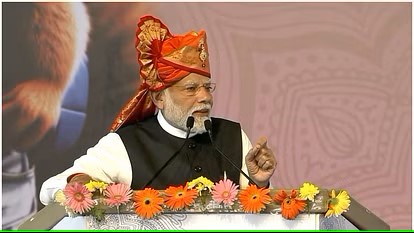The Indian government has taken a significant step toward strengthening the country’s defence capabilities by signing contracts worth over ₹10,000 crore for advanced ammunition and enhanced-range rockets for the Pinaka multiple launch rocket system (MLRS). This move is expected to bolster the Indian Army’s firepower, ensuring precision strikes over long distances and increasing operational effectiveness in challenging combat scenarios.
 In a statement, the Ministry of Defence highlighted that these agreements include procurement of Area Denial Munition (ADM) Type-1 and High Explosive Pre Fragmented (HEPF) Mk-1 (Enhanced) rockets. The contracts were signed with Economic Explosives Limited (EEL) and Munitions India Limited (MIL), both of which play a crucial role in India’s indigenous defence production. The development of these advanced weapons is in line with the government’s commitment to self-reliance under the “Make in India” initiative, reducing dependence on foreign defence suppliers and ensuring a steady supply of critical munitions for the armed forces.
In a statement, the Ministry of Defence highlighted that these agreements include procurement of Area Denial Munition (ADM) Type-1 and High Explosive Pre Fragmented (HEPF) Mk-1 (Enhanced) rockets. The contracts were signed with Economic Explosives Limited (EEL) and Munitions India Limited (MIL), both of which play a crucial role in India’s indigenous defence production. The development of these advanced weapons is in line with the government’s commitment to self-reliance under the “Make in India” initiative, reducing dependence on foreign defence suppliers and ensuring a steady supply of critical munitions for the armed forces.
The Pinaka MLRS, a key component of India’s artillery systems, has undergone continuous upgrades to improve its range, accuracy, and destructive capability. The newly procured HEPF Mk-1 (Enhanced) rockets are an advanced version of the existing HEPF rockets, featuring an extended range to strike deep into enemy territory with greater precision and lethality. These improvements are expected to provide the Indian Army with a significant edge in modern warfare, allowing for swift and effective responses to threats.
ADM Type-1, another vital addition to the arsenal, is equipped with a specialized warhead capable of dispersing multiple sub-munitions over a wide area. This makes it particularly effective against mechanized enemy forces, vehicles, and personnel, preventing their movement and restricting their ability to launch attacks. The Ministry of Defence emphasized that these munitions would enhance the army’s ability to secure strategic locations and neutralize potential threats in a more efficient manner.
In addition to the contracts for the Pinaka MLRS, the Defence Ministry also signed an agreement with Bharat Electronics Limited (BEL) for upgrading the Shakti software system. This upgrade is expected to improve operational coordination and decision-making within the armed forces, reinforcing India’s defence preparedness.
The contracts were signed in New Delhi in the presence of Defence Secretary Rajesh Kumar Singh, marking a milestone in India’s ongoing efforts to modernize its military infrastructure. By investing in cutting-edge technology and indigenous defence manufacturing, the government is not only enhancing national security but also providing a boost to India’s defence industry, creating jobs and fostering technological innovation.
The signing of these contracts comes at a time when global security dynamics are rapidly evolving, and nations are prioritizing military advancements to safeguard their interests. For India, strengthening its artillery capabilities through advanced weaponry like the Pinaka MLRS ensures that the armed forces remain well-equipped to handle any potential conflicts or security challenges. The move is being widely seen as a strategic decision to reinforce India’s military readiness while promoting self-sufficiency in defence production.




